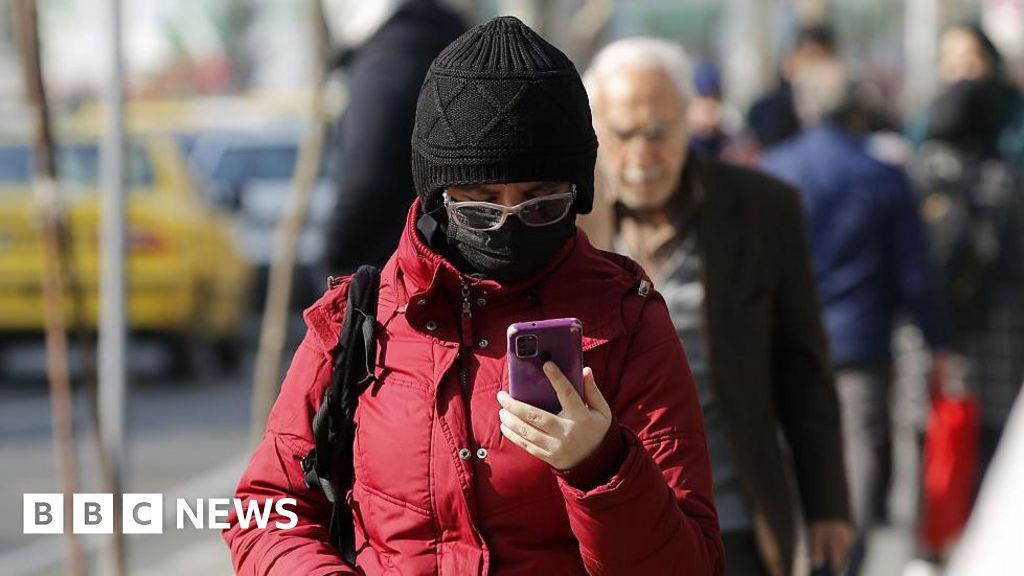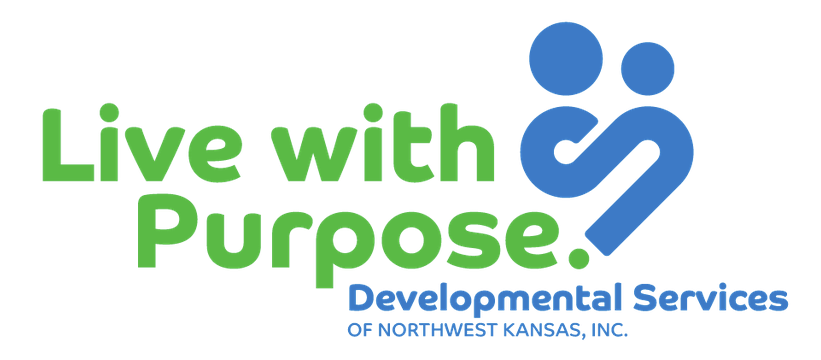The Supreme Court Is About to Hear a Case That Could Rewrite Internet Access – Slate

Report on the Supreme Court Case: Cox Communications, Inc. v. Sony Music Entertainment and its Implications for Sustainable Development Goals
Introduction
The Supreme Court is set to hear the case of Cox Communications, Inc. v. Sony Music Entertainment, a legal dispute with profound implications for digital rights and global development objectives. The central issue is whether an Internet Service Provider (ISP) can be held liable for copyright infringement for failing to terminate the accounts of subscribers accused of repeat offenses. The outcome could determine if internet access—a critical enabler for achieving multiple Sustainable Development Goals (SDGs)—can be revoked as a punitive measure. This report analyzes the case through the lens of the SDGs, highlighting the potential conflict between intellectual property enforcement and the fundamental need for digital connectivity.
Case Background and Legal Framework
The lawsuit originates from a claim by a group of record companies that Cox Communications facilitated widespread copyright infringement by its subscribers. The core legal questions revolve around the concept of secondary liability.
- Initial Lawsuit: Record companies sued Cox, alleging that its subscribers used the network to illegally copy and distribute copyrighted music via platforms like BitTorrent.
- Legal Basis: Cox was found liable for both vicarious and contributory infringement. The appellate court upheld the finding of willful contributory liability, which requires that a party has knowledge of an infringement and materially contributes to it.
- Question Before the Supreme Court: The Court will decide if an ISP’s failure to terminate accounts of known repeat infringers, without otherwise actively encouraging the infringement, constitutes a “material contribution” to that infringement.
- Principle of Secondary Liability: This legal doctrine holds entities responsible for unlawful acts committed by others if they facilitated or supported the activity. Its application in copyright law has evolved with technology, consistently focusing on the facilitator’s intent and knowledge of specific infringing acts.
Implications for Sustainable Development Goals (SDGs)
A ruling that mandates or strongly encourages ISPs to terminate user accounts would directly threaten progress on several key SDGs. Internet access is no longer a luxury but a foundational component of modern economic and social infrastructure.
SDG 9: Industry, Innovation, and Infrastructure
SDG Target 9.c aims to “significantly increase access to information and communications technology and strive to provide universal and affordable access to the Internet.” A broad ruling against Cox could undermine this goal.
- Threat to Universal Access: If ISPs are held liable for user actions to the extent that termination becomes a standard risk-management policy, it could create a more restrictive and punitive digital environment, hindering the goal of universal access.
- Collective Punishment: Account termination is often based on an IP address, which may be shared by a household, a library, a school, or a hospital. Terminating access to an entire institution due to the actions of one individual represents a disproportionate measure that conflicts with the goal of building resilient and inclusive infrastructure.
SDG 4: Quality Education and SDG 8: Decent Work and Economic Growth
The internet is an indispensable tool for education and economic participation. Revoking access would create significant barriers to achieving SDG 4 and SDG 8.
- Barrier to Education: Students rely on the internet for research, online courses, and communication with educators. Losing access would severely disadvantage them, directly contravening the goal of ensuring inclusive and equitable quality education.
- Economic Disenfranchisement: Access to the internet is critical for finding job opportunities, accessing online financial services, participating in the gig economy, and engaging in remote work. Terminating a household’s internet connection could cripple its economic stability and opportunities for growth.
SDG 16: Peace, Justice, and Strong Institutions
This case tests the principles of justice and proportionality within legal institutions. The potential for a sweeping ruling raises concerns about fairness and the rule of law.
- Proportionality of Punishment: While copyright infringement is unlawful, the complete removal of internet access is a cataclysmic penalty that affects not only the infringer but also innocent co-habitants or co-workers. This raises questions about whether the punishment fits the crime, a core tenet of just legal systems.
- Corporate Responsibility vs. User Rights: The evidence suggests Cox demonstrated contempt for copyright law and prioritized subscription fees over compliance. Internal communications revealed a policy designed to create the appearance of enforcement without ever actually terminating accounts. While Cox’s intent is a critical factor, the remedy must not disproportionately harm the public’s access to a vital resource.
Conclusion and Recommendations
Cox Communications’ deliberate inaction in the face of repeated infringement notices is a significant factor leading to this legal challenge. However, a judicial remedy that establishes internet access termination as a standard response to copyright infringement would have severe and far-reaching negative consequences for sustainable development.
Rather than inaction, Cox had a range of alternative measures it could have implemented:
- Limiting or slowing internet speeds for infringing accounts.
- Imposing financial penalties.
- Collaborating with institutions like schools or employers associated with infringing IP addresses to address the issue directly.
- Reserving account termination for only the most persistent and egregious offenders after all other measures have failed.
The Supreme Court faces the challenge of crafting a decision that holds service providers accountable for willful contributions to infringement while simultaneously safeguarding internet access as an essential service for education, economic well-being, and civic participation. The ruling must thread a needle between protecting intellectual property rights and upholding the broader societal goals encapsulated in the SDGs.
Analysis of Sustainable Development Goals in the Article
1. Which SDGs are addressed or connected to the issues highlighted in the article?
-
SDG 4: Quality Education
The article explicitly states that “We rely on the internet to learn.” The potential loss of internet access directly threatens the ability of individuals and communities to engage in online learning and access educational resources, making SDG 4 highly relevant.
-
SDG 8: Decent Work and Economic Growth
The text highlights the internet’s crucial role in economic life, including its use to “discover job opportunities,” “work,” access “online financial services,” and “file our taxes.” Terminating internet access would severely hamper individuals’ ability to participate in the economy and secure decent work.
-
SDG 9: Industry, Innovation, and Infrastructure
This goal is central to the article, which focuses on internet access as a critical piece of modern infrastructure. The legal case discussed could set a precedent for how internet service providers (ISPs) manage their networks, directly impacting the availability and reliability of this essential information and communications technology (ICT) infrastructure.
-
SDG 10: Reduced Inequalities
The article raises concerns about inequality by pointing out that terminating internet access based on an IP address would punish innocent people. It notes that “Blocking an IP address would not just deprive a repeat infringer of internet access, but also their household or co-workers,” and could even cause an outage for an “entire library, school, or hospital.” This creates a digital divide and disproportionately affects those who share internet connections.
-
SDG 16: Peace, Justice, and Strong Institutions
The article revolves around a Supreme Court case, which is a key institution of justice. It discusses the development of copyright law, legal liability, and the potential for a “draconian standard” of punishment. The issue touches upon ensuring public access to information and the role of institutions in balancing rights and responsibilities in a way that is fair and just.
2. What specific targets under those SDGs can be identified based on the article’s content?
-
Target 9.c: “Significantly increase access to information and communications technology and strive to provide universal and affordable access to the Internet.”
The article’s core conflict is the potential termination of internet access for thousands of users. This action directly opposes the goal of increasing and universalizing access to ICT, making this target the most relevant one discussed.
-
Target 16.10: “Ensure public access to information and protect fundamental freedoms, in accordance with national legislation and international agreements.”
The internet is described as a “lifeline” for accessing “news” and participating in “civic life.” The threat of losing this access is a direct threat to the public’s ability to access information, a key component of this target.
-
Target 10.2: “By 2030, empower and promote the social, economic and political inclusion of all…”
Losing internet access is a form of social and economic exclusion. The article highlights how this exclusion could unfairly impact entire households or institutions like schools and libraries, thereby increasing inequality and working against the principle of inclusion for all.
-
Target 4.4: “By 2030, substantially increase the number of youth and adults who have relevant skills, including technical and vocational skills, for employment, decent jobs and entrepreneurship.”
The internet is an essential tool for acquiring modern technical and vocational skills. The article’s mention of using the internet “to learn” and for “job opportunities” connects the issue to this target, as losing access would be a significant barrier to skill development.
3. Are there any indicators mentioned or implied in the article that can be used to measure progress towards the identified targets?
- Number of internet accounts at risk of termination: The article provides a specific figure, stating that removing internet access would be a remedy for “over 57,000 accused accounts.” This number serves as a direct, quantifiable indicator of the potential negative impact on internet access (relevant to Target 9.c).
- Scope of access disruption for non-infringing users: The article implies an indicator by describing how terminating an IP address could affect an entire “household,” “library, school, or hospital.” This suggests measuring the number of innocent or non-targeted individuals and institutions who lose internet access as a result of policies aimed at punishing a single user, which is relevant for measuring inequality (Target 10.2).
- Availability of essential online services: The article lists several essential activities that depend on the internet: learning, finding jobs, accessing financial services, and participating in civic life. An implied indicator would be the proportion of the population that maintains uninterrupted access to these critical online resources, which is relevant to measuring progress on targets related to education, economic growth, and access to information (Targets 4.4, 8.3, and 16.10).
4. Summary Table of SDGs, Targets, and Indicators
| SDGs | Targets | Indicators (as identified in the article) |
|---|---|---|
| SDG 9: Industry, Innovation, and Infrastructure | Target 9.c: Significantly increase access to ICT and strive to provide universal and affordable access to the Internet. | The number of internet subscriptions at risk of termination (explicitly mentioned as “over 57,000 accused accounts”). |
| SDG 10: Reduced Inequalities | Target 10.2: Empower and promote the social, economic and political inclusion of all. | The number of non-infringing users or public institutions (households, libraries, schools) affected by account terminations based on shared IP addresses. |
| SDG 16: Peace, Justice, and Strong Institutions | Target 16.10: Ensure public access to information. | The continued availability of online access to news and resources for participation in civic life. |
| SDG 4: Quality Education | Target 4.4: Substantially increase the number of youth and adults who have relevant skills for employment. | The ability of the population to access online learning resources without interruption. |
| SDG 8: Decent Work and Economic Growth | Target 8.3: Promote policies that support productive activities, decent job creation, entrepreneurship. | The ability of the population to access online job listings, financial services, and other tools for economic participation. |
Source: slate.com
What is Your Reaction?
 Like
0
Like
0
 Dislike
0
Dislike
0
 Love
0
Love
0
 Funny
0
Funny
0
 Angry
0
Angry
0
 Sad
0
Sad
0
 Wow
0
Wow
0












































































